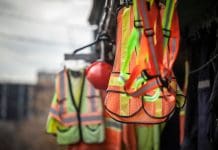The government’s £5bn cladding remediation fund ‘won’t scratch the surface’ for what is required to make every high-rise development EWS1 A1 compliant, says Colmore Tang Construction
Colmore Tang Construction has priced remedial projects on over 20 high-rise developments in Leeds, Liverpool, Manchester and The Midlands in the last few months and their analysis suggests a total figure closer to £50bn.
The company found the average cost of cladding remediation works to be circa £4.65m for buildings above 18m and circa £2m for buildings between 11m and 18m, which they claim is a fair reflection of typical costs across the country.
The latest Building Safety Programme figures from MHCLG reveals that around 5,000 buildings over 18m require an EWS1 certificate and may require remedial works, while the same can be said for around 35,000 11-18m buildings.
According to Colmore Tang’s pricing, which reflects their first-hand and recent experience of tender processes for cladding remedial works, this would bring the total to around £25bn for buildings over 18m and £70bn for buildings between 11m and 18m.
Given the lack of information available and taking an optimistic view, the contractor has reduced the theoretical total of £95bn by around half for safe measure, arriving at almost £50bn + VAT as a realistic upper sum.
Revisions from industry experts and political representatives have put question marks over the government’s arrival at £5bn as a realistic budget, which fails to account for the irrecoverable 20% VAT and which Colmore Tang believes will ultimately be borne by the unfortunate occupiers.
The contractor’s evidence suggests that the initial costing methodology from professionals submitting bids to the Building Safety Fund did not accurately reflect the full scope of works. Colmore Tang claims that initial bid submissions do not fully account for many logistical challenges, permits, rising costs of materials and scarcity of resources.
‘A stark difference between costing a project and executing it’
Steve Underwood, chief operating officer of Colmore Tang, said: “The bottom line is that the true cost of remedial works has been severely underestimated and meaningful progress won’t be made until politicians and industry professionals develop a clearer understanding of funding and logistical challenges at hand here.
“Our estimates are not plucked out of thin air but are based upon real-life scenarios which we see day in, day out. There’s a stark difference between costing a project and actually executing it, which largely explains this discrepancy.
“We’re seeing developers and surveyors quoting budgets that are nowhere near where they should be and we’re sleepwalking into a scenario in which that only becomes apparent halfway through the remedial works. That’s bad news for everyone.”
Underwood commented: “Suggestions that by simply re-tendering schemes we can reduce costs to original figures are patently unrealistic and quite frankly, dangerous.
“The race to the bottom approach to costing produced the poor workmanship, material standards and quality control which led to the cladding crisis in the first place and we are in danger of things spiralling out of control if we don’t buck up our ideas. That needs to be driven by contractors, developers and surveyors and supported by a government prepared to dip into its pockets.”
He added: “Another of the government’s urgent priorities will be to address the insurance dilemma, which has gone under the radar despite it being one of the most onerous stumbling blocks in this crisis.
“Insurance providers need to be able to offer Professional Indemnity Insurance at commercially attractive rates, to enable this, insurances may have to be underwritten by Government.
“That, combined with risk-based analysis on affected buildings, the removal of VAT on the works, fast track training and development for specialist designers and fire engineers, are the first steps we need to take.”







![[Video] Fireco: 80 new fire doors required for residential flats in London](https://www.pbctoday.co.uk/news/wp-content/uploads/2025/04/2024-06-01-Lords-view-one_1200x750_004-218x150.webp)


![[VIDEO] Making DorTrak reports easy to read with Fireco Inspecting fire doors at Fireco, firedoor technology, 2023](https://www.pbctoday.co.uk/news/wp-content/uploads/2024/04/JPZ_2364-web-218x150.jpg)



![[VIDEO] UK-based firm reveals ‘world’s first’ fully AI-driven architectural project Studio Tim Fu has revealed the 'world's first' fully AI-driven architectural project in Slovenia, developing six luxury villas on the Lake Bled Estate](https://www.pbctoday.co.uk/news/wp-content/uploads/2025/03/Interior-1-studio-tim-fu-218x150.gif)